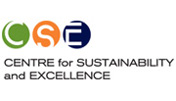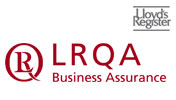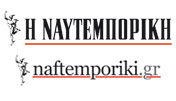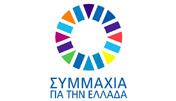|
Objectives
-
Conference Objective
The Greek Institute for Building Technology and Science operates exclusively in the construction of buildings and therefore in the wider construction sector.
More
-
The construction sector in Europe contributes considerably both in the shaping of social conditions (labor market), and in the development of economic and environmental conditions (energy and material dependence, emissions of greenhouse gases, etc.). It represents 7% of the total labor market and 30% the industrial and consists of 3 million businesses, of which 95% have fewer than 20 employees (44 million jobs depend directly or indirectly on the construction sector). Construction investments amount to € 1.2 trillion and contribute 10% of European GDP.
The basic objective of the European Union is a significant reduction of greenhouse gases by 80% by 2050, mainly through energy saving and increasing the share of energy production from renewable sources.
Construction and operation of buildings is responsible for 42% of energy consumption, 35% of greenhouse gas emissions, 30% of water consumption and 50% of total mining material resources.
The European strategy for the construction industry has three priorities:
- Smart Growth: Creating a new economy based on knowledge and innovation
- Sustainable growth: Promoting a more efficient, competitive and environmentally friendly economy
- Inclusive growth: Enhancing employment in the economy so that there is social and regional cohesion
The "green" buildings face the above challenges and pathologies dually and in full compliance with the pursuit of the EU, both consuming the least possible energy during construction and operation, and on the other hand using energy generated with the fewest possible pollutants.
The idea behind the conference is to introduce the institution of green buildings, presenting and analyzing systems of energy production from renewable sources, energy storage forms, modern energy management systems, techniques and energy saving practices, possibilities of aid, subsidy and loan to improve the energy efficiency and finally the policy followed by the European Union and the Greek state in the above topics.
Less
-
Subject overview
The conference consists of 4 sub-sections covering the fields of energy production in buildings by renewable sources, energy management in buildings and networks, energy saving and energy policy in buildings.
The above topics fully cover all aspects of the energy identity of buildings and present all the latest developments and technologies in global, European and national level.
More
-
Energy Production in buildings by renewable sources
This section will focus on new technologies and new systems of energy production from renewable sources that can be installed in the buildings, while developing the current abilities and incentives for installation.
Will analyze the current legislation on their main technologies, the penetration and technical adequacy of Greek companies and their technical and financial dimension will be presented in detail. In this section companies of marketing & installation of energy production systems in buildings, such as solar companies, wind turbines, geothermal, biomass exploitation, heat pump, etc will be represented. Also, current or anticipated business support programs for installing energy production systems will be presented.
Management of produced and consumed energy with modern systems
This section will develop the modern management features for building & energy (Building Energy Management Systems - BEMS), smart metering technologies (Smart Metering) and certified energy management systems (ISO 50001).
We will also be highlighting the necessity of targeting and verification of the design and installation of energy systems and installations (commissioning) and will be presenting the evaluation systems of the sustainability of buildings and the environment (LEED, BREEAM), as well as the efforts to adopt to the European standard.
Finally, we will be presenting contemporary examples of their application in buildings.
Practices & energy saving programs in buildings
This section will feature current programs of aid and subsidy to upgrade the energy performance of buildings, issues related to legislation on energy inspectors, operation and organization of the institution of energy services companies (IF-ESCO) and other developments.
At the same time, this section will include modern energy saving techniques, such as modern insulating materials, light pipes, planted roofs, reflective paints, etc.
Finally, it will present the new EU Directive 2012/27 on energy efficiency and its impact on the Greek economy, as well as the financial dimension of these interventions to investors, tenants and users.
Policy of the European Union & National Policy on Energy
This section will present the quantified objectives of the European Union regarding the energy policy and the roadmap for 2050. We will also consider the national actions to incorporate EU directives for energy, the national legislation on the New Building Regulations and its provisions for new and existing buildings. At the same time we will reflect the current state of the installed power of the systems producing energy from renewable sources in buildings.
Finally, we will develop the policy of the European Union and the Greek state in matters of producing, managing and saving energy in buildings.
Less
-
Target Group
The conference is addressed to a large number of interested groups (stakeholders), who wish their awareness on issues related to new technologies and manufacturing practices and energy saving. Main groups are the designers of new housing (mostly architects, civil engineers, mechanical engineers, electrical engineers, etc.). This group will in the future be required to incorporate modern production technologies, energy management and saving in buildings with mandatory provisions that today are optional.
More
-
Following are the manufacturers engineers, who are called to apply this design, while with them are the producers and manufacturers of products, materials and equipment.
Finally, regarding the interest in financial or technical level, interested groups are practitioners, property owners, investors, energy consultants, users and managers of buildings, researchers and public officers / directors.
Less
|













